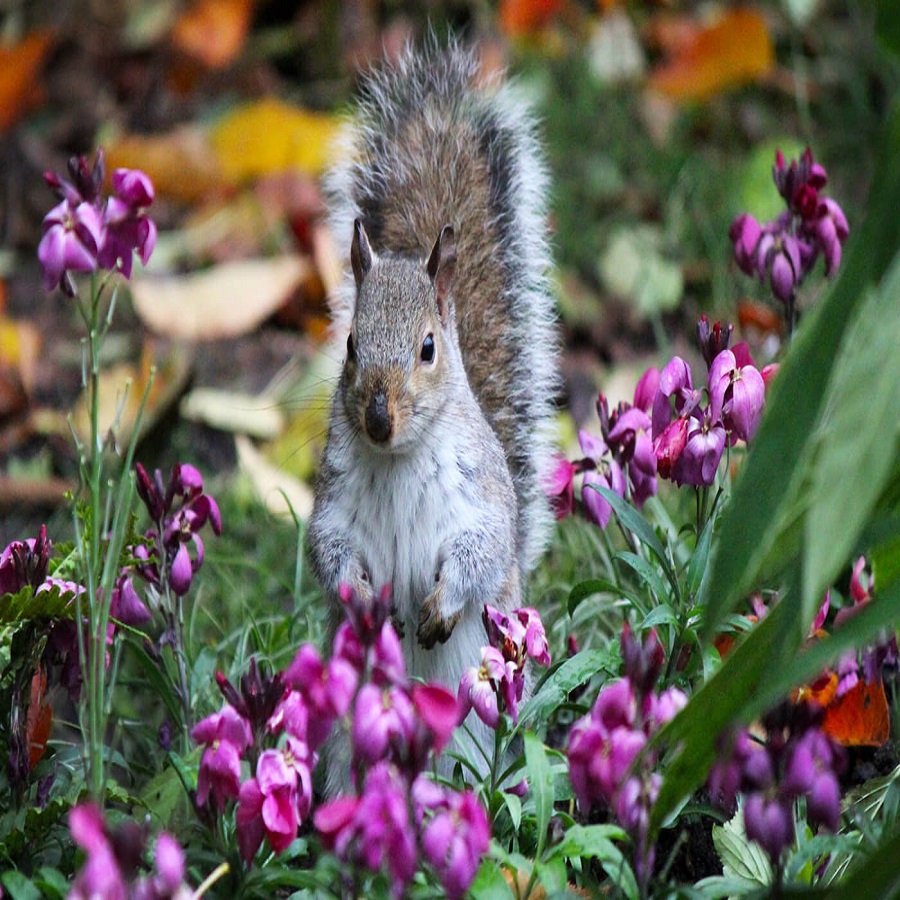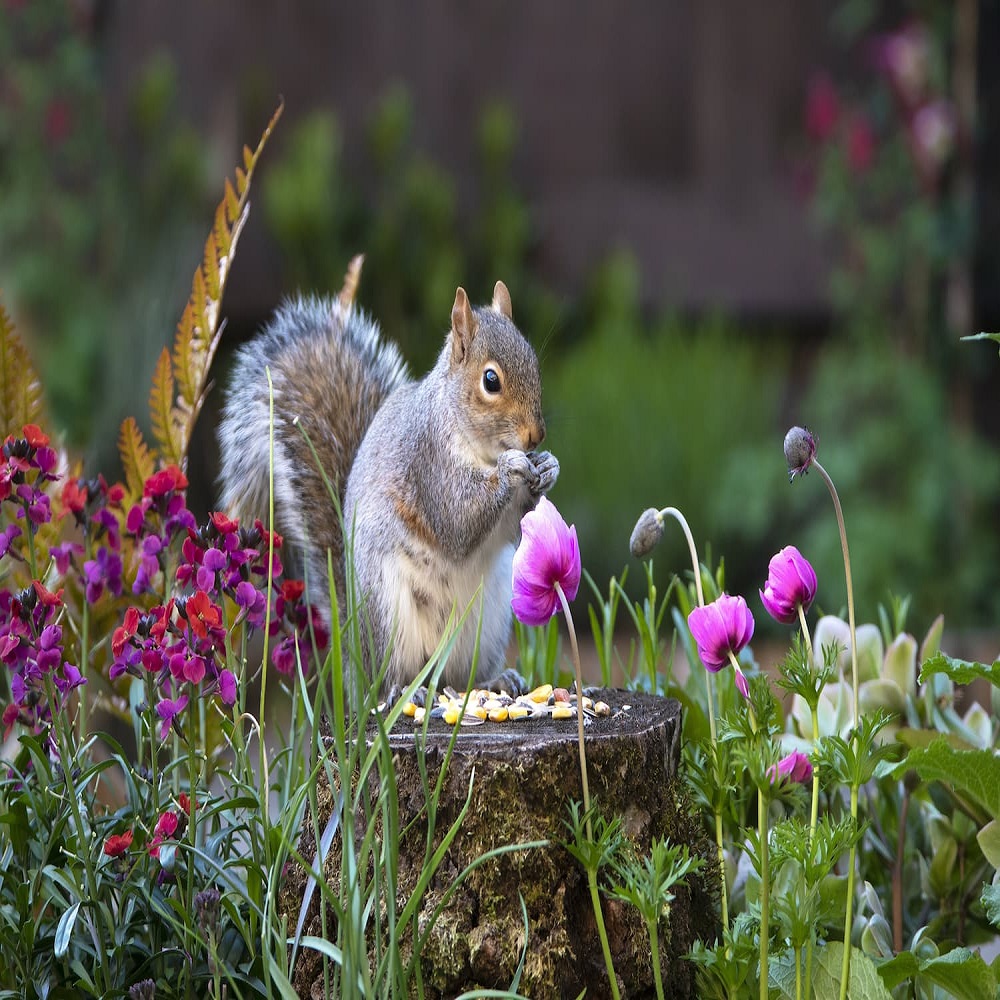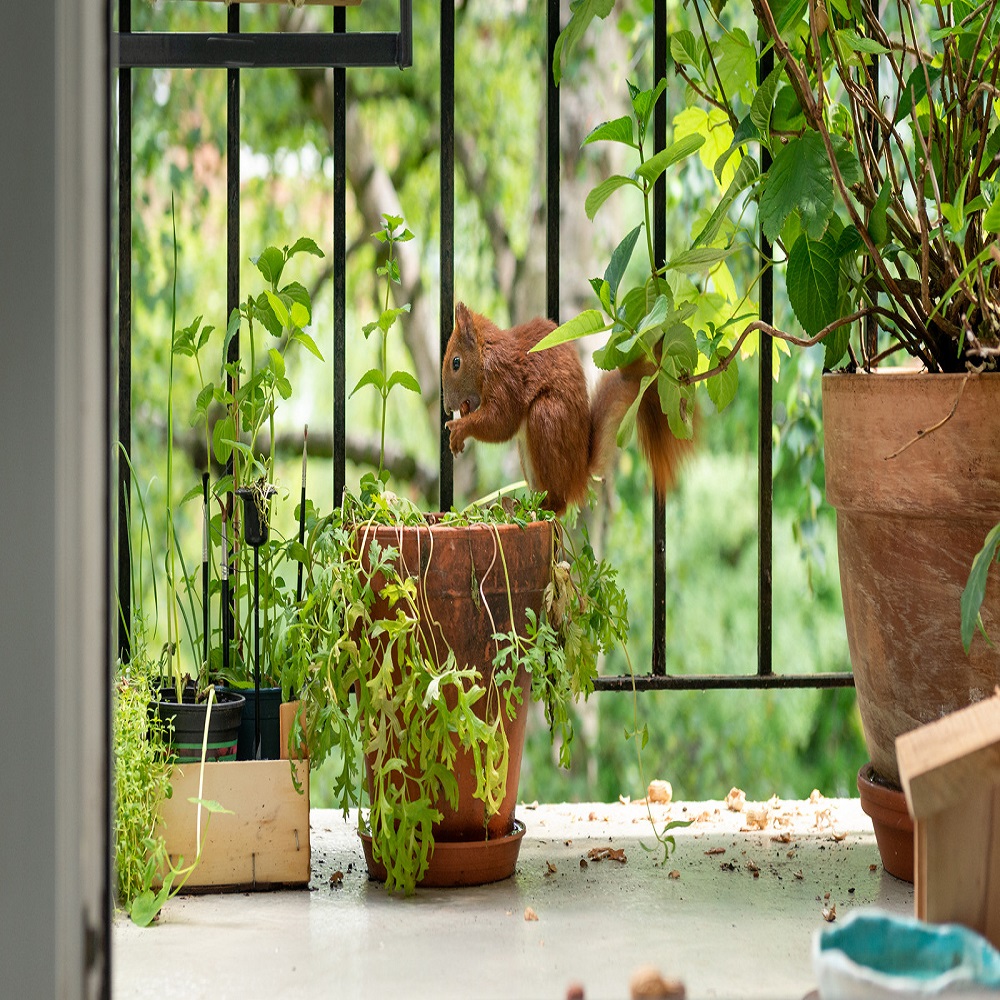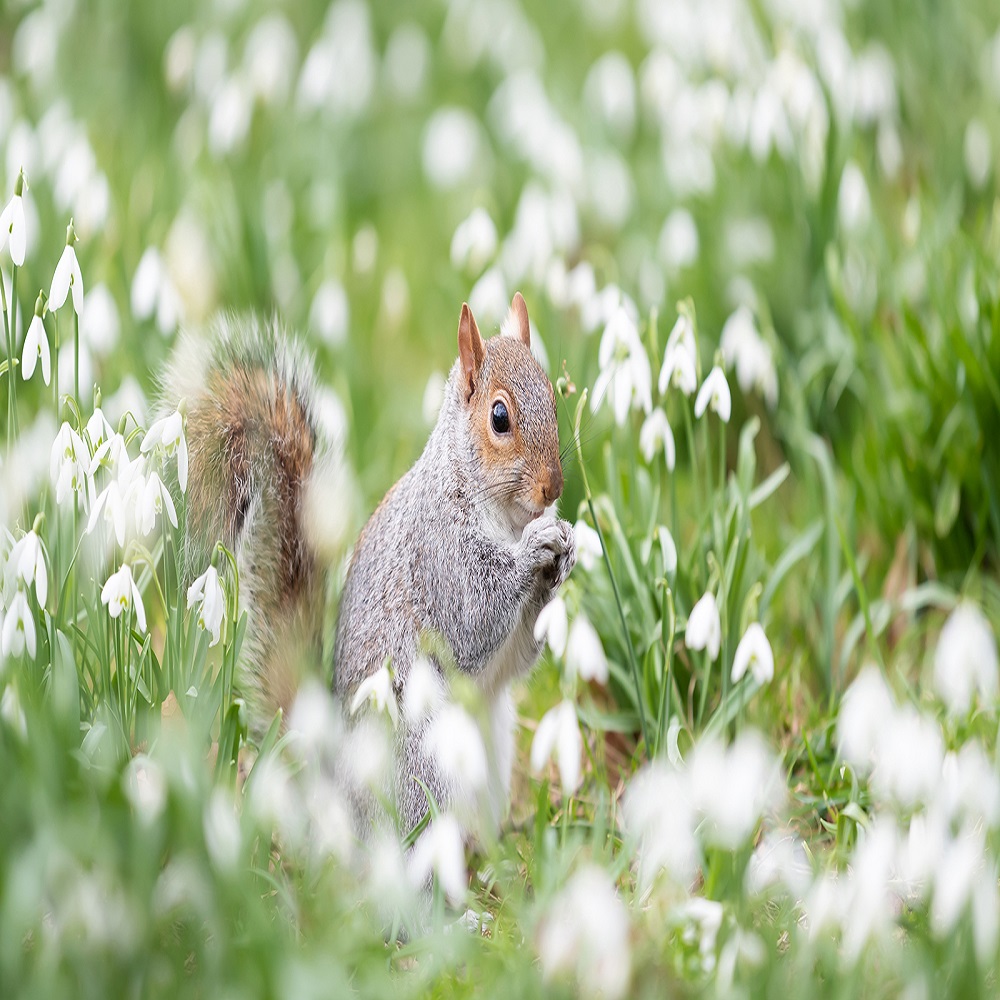Identifying Squirrel Behavior in Gardens
Understanding why squirrels frequent your flower pots is key to effective deterrent strategies.
Reasons Squirrels Choose Potted Plants
Squirrels primarily target potted plants for two reasons. Firstly, the soft and fluffy potting soil makes it easy for them to dig and bury their food stocks, such as acorns and nuts. Secondly, these contained environments provide an attractive shelter for storing their reserves, often causing disturbance to your plant’s health.
The Impact of Squirrels on Plant Health
The digging habits of squirrels can severely impact the health of potted plants. They often uproot plants and damage the root systems, stunting growth and sometimes killing the plants. Squirrels may also gnaw at leaves and stems, further harming the plant’s vitality. Preventing these issues forms a crucial part of maintaining the health and beauty of your potted garden.

DIY Repellent Recipes to Protect Potted Plants
Creating your own repellent blends is a cost-effective way to deter squirrels. Let’s explore some recipes you can make with household items.
Natural Ingredient Mixtures That Deter Squirrels
A variety of spices and domestic items can keep squirrels from your garden pots. Cayenne pepper, garlic, and vinegar are just some examples. Mixing these can produce an unpleasant scent for squirrels but are harmless to plants. Try different combinations to find what works best in your garden.
Blood meal is another repellent that doubles as a fertilizer. It’s rich in nitrogen, which plants love, but squirrels dislike. Sprinkle it moderately in your potting mix to avoid over-fertilization.
Preparing and Applying Homemade Sprays
Homemade sprays are a simple solution. Boil ingredients like black pepper, cayenne pepper, onions, and jalapeno for 20 minutes. Strain this mixture and pour it into a spray bottle. Spray it around the soil, but be careful; it can irritate your skin and eyes.
Remember, reapplication is key. These home remedies to keep squirrels out of flower pots are not permanent fixes. After rain or regular watering, you’ll need to apply your mixtures again to maintain effectiveness. Consistency will ensure your potted plants remain squirrel-free.
Strategic Planting Techniques to Discourage Squirrels
Adding certain plants can help keep squirrels away from your flower pots.
Flowers That Naturally Repel Squirrels
Some flowers give off scents that squirrels don’t like. Planting these can protect your garden. Marigolds, nasturtiums, and mustard flowers are good choices. They have strong smells that squirrels tend to avoid.
Squirrels also dislike alliums and citronella. These plants not only repel squirrels but also add beauty to your space. Planting them near your pots can create a natural barrier against these pesky creatures.
Beneficial Companion Planting for Deterrence
Companion planting involves growing certain plants together for mutual benefit. This method can also deter pests like squirrels.
Placing deterrent plants among your potted flowers can keep squirrels at bay. Strong-smelling herbs such as mint, thyme, and oregano can help. These plants make your garden less appealing to squirrels.
Using companion plants is a one-two punch for garden health. They deter squirrels and can also help your main plants grow better. For example, garlic can improve the health of roses and drive away squirrels.
Utilizing Physical Barriers for Plant Protection
Physical barriers can be a strong line of defense against squirrels.
Chicken Wire and Netting Solutions
Using chicken wire or bird netting covers can protect your plants effectively. Cover the soil surface after planting. Secure the edges to prevent squirrels from lifting the barrier. Netting also allows sunlight and water to reach the plants.
Alternative Barriers: Stones, Skewers, and More
Adding a layer of stones or gravel can deter digging. Make sure stones do not cover roots too heavily. Sharp objects like bamboo skewers can also discourage squirrels. Insert them into the soil around plants. Align them close enough to prevent comfortable digging spots. Both stones and skewers can add an aesthetic touch to your pots.

Non-Toxic and Organic Deterrence Methods
Gardening in harmony with nature is beneficial and fulfilling. Embracing organic ways to deter squirrels keeps your garden safe and eco-friendly.
Safe and Natural Repellents
Many organic materials work as effective squirrel repellents. For instance, creating a barrier with substances like chili flakes, mint, or cinnamon can prevent squirrels from approaching your plants. These ingredients emit odors that squirrels find unpleasant. Mixing these spices and sprinkling them around your plant bases forms a natural deterrent. Ground coffee and cayenne pepper are safe for plants but unpleasant for squirrels. Also, non-toxic fox or coyote urine can serve as a deterrent by mimicking the presence of predators.
The Role of Mulch and Ground Covers in Squirrel Deterrence
Applying a thick layer of mulch around your potted plants can also help. Mulch helps to conceal the soil, making it less attractive for squirrels to dig in. Additionally, using organic ground covers such as heavy bark or wood chips can weigh down the soil. This tactic discourages squirrels from trying to uncover or disturb the underlying dirt. These methods are not only effective but also help in retaining soil moisture and adding aesthetic value to your garden.
Technology and Gadgets to Keep Squirrels at Bay
Incorporating technology into your squirrel deterrence plan can offer a hands-off and efficient solution.
Ultrasonic Devices as a Deterrent
Ultrasonic devices are modern tools for keeping squirrels away. These gadgets emit sounds at frequencies that humans can’t hear, but pests, including squirrels, find disturbing. Place them in or around your pots, and they’ll help keep the area free of unwanted visitors. Keep in mind, while pets may not react to these frequencies, monitoring their behavior is smart to make sure they’re not bothered.
Varieties of ultrasonic deterrents are available, with different features. Some can be staked into the soil, others are free-standing. Many are solar-powered, making them eco-friendly. They may need to be moved periodically for best results. Combining these devices with other methods from this blog can enhance your squirrel-proofing efforts.
The Effectiveness of Motion-Activated Sprinklers
Motion-activated sprinklers are another tech option that can deter squirrels from your flower pots. They sense movement and squirt water, startling squirrels and other critters before they can cause harm. This approach doubles as a watering system for your plants. Set them up strategically to cover the areas where you’ve noticed squirrel activity.
These sprinklers can be adjusted for sensitivity and range, fitting different garden sizes. They’re harmless to animals and offer a surprise factor that helps in keeping squirrels at bay. Regular check-ups are necessary to maintain the sprinklers’ proper functioning. Make sure they don’t target friendly visitors like birds or your neighborhood pets. Combined with other deterrent methods, these sprinklers can greatly reduce squirrel-related disturbances in your garden.

Additional Tips for Squirrel Management in Gardens
Effective squirrel management extends beyond deterrents and repellents. Consider these additional strategies.
The Pros and Cons of Feeding Squirrels Away from Plants
Feeding squirrels away from your plants can distract them from your flower pots. Provide a specific feeding area with favored foods like nuts or seeds. This method can keep them occupied. However, it might attract more squirrels to your garden, increasing the risk of plant damage. Monitor the situation closely to ensure it doesn’t counteract your repellent efforts.
Understanding the Importance of Regular Scent Refreshment
Scent-based repellents need regular application to remain effective. Natural ingredients like cayenne pepper and garlic lose their potency over time. Rain and watering can also dilute these scents. Refresh these repellents frequently, especially after wet weather. Consistent application helps keep squirrels away continuously. This practice ensures that your garden remains protected throughout the season.
